Last Updated on April 11, 2024
A lot of people I work with want tips about eating healthy on a budget. They’re concerned about the financial impact of healthier food options. They’re hesitant to buy healthy, organic options because they’re more expensive. Organic foods are more expensive compared to processed, convenience foods.
It’s well known that processed foods are linked to health issues including heart disease, diabetes, cancer, etc.
A lot of people already know that organic, whole food (non processed, no/low chemical) options are the best for your health, wellbeing, and metabolism because you can avoid chemicals and harmful additives. But, in spite of the benefits of going organic and buying healthier options, I find that a lot of people resist because of sticker shock.
That’s why I put together this post packed with advice all about eating healthy on a budget packed with 50+ tips to save money while shopping for food.
First, I’ll explain why organic food is priced higher and why it’s worth the investment(!).
Then I’ll share 50+ of my best money saving tips for for eating healthy on a budget.
Ready? Let’s do this!
Why Does Healthy, Organic Food Cost more?
It’s true, organic products are more expensive. But, that’s only because organic foods take longer to grow and may experience loss due to pests, fungus, mold, rot… or a bad crop in general.
Time = money. When you can grow more food, faster, and avoid losses from rot, pests, and spoilage you obviously make more money. That’s why conventional (aka processed) foods are cheaper. They’re chemically treated, engineered, and pumped full of preservatives so there’s less waste and more profits.
Non-organic foods are less expensive because they use chemicals to cheat Mother Nature and try to turn higher profits.
Processed foods, or conventionally grown foods are terrible for your body.
- Your body was never meant to metabolize or digest these toxic chemicals and additives. They can make you sick, inflamed, acidic, and unhealthy.
- Chemical-laden, cancer-causing growth hormones, immunity destroying antibiotics and dangerous pesticides are commonly found in meat and dairy products. They have been shown to affect immunity and normal endocrine (hormone) function.
- Pesticides are used on non-organic fruits, vegetables, and grains, (like wheat, soy, and corn). Pesticides, like glyphosate and Round-Up, have the potential to cause neurological problems, cancer, infertility, nausea, vomiting, diarrhea, allergies and asthma, wheezing, rashes and other skin problems, ADHD, reproductive issues, birth defects and more.
- Genetically modified foods have the potential to cause health issues.
Pesticides and GMO’s, by nature, are toxic poisons, designed to alter and/or kill living things.
The diseases and health issues that these chemicals cause are very expensive. So even though unhealthy foods are cheaper, you pay significantly more later after health issues and disease develops. Diabetes, cardiovascular disease, thyroid disorders, hormone issues, etc. and the doctors appointments, labs, medications, treatments necessary to treat them – are very expensive.
WHY IT’S SMART TO INVEST IN HEALTHY, ORGANIC FOOD
Food isn’t just fuel, it’s information. What you eat either programs the body for health… or not.
The best foods needed to give the body the nutritional support it needs is to eat organic, non-GMO, whole food options.
Buying nutritious, quality organic food will save you BIG BUCKS down the road in medical costs, prescription drugs and doctor visits. The choice is yours… pay a premium to ethical farmers now, or pay the doctors later.
The (minimal) additional up-front expense is the only negative associated with living an organic lifestyle.
It helps to think of buying organic, healthy whole foods like an investment in your health.
Going organic can help prevent fertility issues, toxic build-up in the body, and reduces risk of cancer by 25%.
A French study published in the December edition of JAMA Internal Medicine, a journal from the American Medical Association, found that among nearly 69,000 participants, those who ate the most organic food frequently had 25% fewer cases of cancers than those that didn’t eat organic food.
Data from the Harvard University T.H. Chan School of Public Health Environment and Reproductive Health, or EARTH, study in 2018, found a direct link between study participants that had a diet high in pesticide residues and fertility problems.
The most recent studies have found that adults and children experienced an average 60% reduction synthetic pesticides levels found in their urine, in just 6 days after going organic and stopping the standard American diet.
These findings suggest a diet lowest in pesticide residues is best for everybody.
Thought provoking questions to consider:
- Although cheaper, can you really afford to risk you and your family’s health eating toxic chemicals?
- When given the choice, can you logically justify buying foods with poisons sprayed on them?
- Would you rather have unexpected, unwanted medical/prescription costs?
50+ Tips for Eating Healthy on a Budget
It’s completely possible to save money on healthy, organic food options.. and possibly spend less than you currently are. That’s because toxic, processed, chemical-heavy foods are significantly more addictive. Healthy, whole foods, are not.
Use these tips to eat healthy on a budget and save big on your grocery bill buying organics and healthy whole foods.
EAT HEALTHY ON A BUDGET WITH COUPONS
- Check the websites of your favorite companies for coupons and special promotions, almost all of them have some type of coupon or promotion going on 24/7.
- Follow your favorite Organic & Health Brands and grocery stores on social media. Sign up for their emails on their websites, too. Company’s often times use social media and email blasts to share promotions, exclusive coupons, and deals.
- Use coupons you find online at your local grocery store. Most major supermarkets will honor coupons for other retailers, so don’t be afraid to try to use them at your favorite grocery store.
- Whole Foods posts new coupons for different organic products every week. So make sure you take advantage of promotions to save money.
- Simply Organic (organic spices, seasoning mixes and baking mixes) always have coupons on their website here.
HOW TO SAVE MONEY EATING HEALTHY AT HOME
- DIY Vs. Buy. You can save money easily, making your own organic granola bars, veggie chips, smoothies, and juices etc. instead of buying store-bought products at a premium. Plus, cooking at home is a great way to get your kids involved.
- Master Portion Control – Portioning out organic meats and vegetables is a great way to save money (and calories)! Once you buy organic products, divide then package your pre-portioned foods at the right serving sizes to automatically control over-eating and spending.
- Stay organized. Fail to plan. Plan to fail… Plan out your meals for the week according to organic foods that are on sale and/or that you have coupons for.
- Create an Allowance for Organic Spending – Having a weekly (or monthly) budget can help you track your spending. A budget will help you become aware of how much you’re really spending a week and see where you can allocate money towards organic purchases.
TIPS TO EAT HEALTHY AND SAVE MONEY
- Meat & dairy (animals products like chicken, eggs, cheese, butter, yogurt, milk, etc.) are the most important to buy organic because of the combined risk of pesticide, antibiotic and cancer causing growth hormone exposure. Whatever you do, do not skimp here.
- Shop sales. A lot of people don’t buy organic meats. When organic options go on sale, stock up!
- Buy a whole organic chicken for less per pound, vs. just the breast, legs or wings, which are more expensive per pound. Bonus! You can use the carcass to make your own chicken stock or bone broth.
- Avoid buying pre-washed, prepped, ready-to-eat fruits and veggies, as they can cost twice as much if you were to buy them whole and prep them yourself at home.
- The EWG ranks foods with the least and most pesticides and they’re called the Clean 15 and Dirty Dozen. You can buy the “Clean 15” inorganic and the “Dirty Dozen” organic.
SAVE MONEY WITH FROZEN ORGANIC FOODS
- Frozen produce is typically cheaper than fresh foods, especially if the fruit or vegetable is out of season. Opting for frozen organic foods instead of fresh can save you money.
- Prepackaging, then freezing portion-controlled servings will help you have food ready-to-go in the appropriate portion size, that can help save you calories, too.
- Buy local produce when in season then freeze it, so you have things on-hand during the off-season. For example, freeze fruit like strawberries you get during the summer, so you can enjoy it in the fall.
- When cooking, double recipes and freeze leftovers, this works great with soups and stews.
- Freeze all left overs using inexpensive glass jars or BPA free plastic containers.
BUY ORGANIC IN BULK
- Find out what foods are in season and buy those in bulk, as they are significantly cheaper.
- Take advantage of the ‘buy one get one free’ sales or buy one get the other for a discounted price. This tips works best, when buying staples.
- Buy loose, unpackaged foods from bulk dispensers – I personally save a ton of cash by doing this. I buy everything from organic popcorn, nuts, dried fruit and beans.
- Bring measuring cups with you to the grocery store if you are buying from bulk containers. This way you’ll get the exact the amount you need (for a specific recipe) and won’t pay extra for overages that will go unused.
- Buy the smallest-sized organic packets or jars of spices. Spices lose their medicinal and health properties as they age. Always opt for the smallest sizes when buying spices and dried herbs and you can save a ton of money while ensuring you’re getting the most potency.
MORE TIPS TO SAVE MONEY SHOPPING HEALTHY
- Choose less expensive store-brand organic products. Grocery stores like Kroger, Publix and Trader Joe’s, all have organic store-brand options. All organic products are required to follow the same guidelines set forth by the USDA organic certification program. As long as a product has the USDA organic seal, the less-expensive store-brand products are just as good at the name brand.
- Sign up for your Grocery Store’s rewards Card program. Most convenient stores, grocery stores, and drug stores allow you to sign-up for a rewards or savings card that will help you save money on a few of your items at the checkout counter. For example, if you join Kroger’s Savings Club program, you get points for every dollar spent. Accumulated points can be used towards discounts in the future. Even if this time of purchase does not contain organic food, the extra money that you are saving on your items can be put towards buying it when need be.
- Always remember that your satisfaction comes first! If you are not satisfied with your organic product, most grocery stores and organic food companies offer you money back guarantee. If you aren’t 100% happy with your organic purchases you can get your money back.
SAVE MONEY BUYING ORGANIC PRODUCTS LOCALLY
- Hit up a local farmer’s market. Local food can be significantly cheaper than food shipped from miles away.
- Ask your farmer about his farming practices. Some farmers do not spray pesticides on their crops but do not seek USDA certification to keep prices lower.
- Be the last person to leave the farmer’s market. Farmers will likely cut their prices at the end of the day, so they do not have to take their produce back to the farm.
- Make relationships with farmers. As about discounts, upcoming promotions, and discounts for buying in bulk.
- Consider buying meat from an animal… for example, buy a cow and have the farmer process it for you. You can get meat for pennies on the dollar this way.
SAVE MONEY EATING HEALTHY AWAY FROM HOME
- Hit up a grocery store instead of dining at pricey restaurants. Picking up organic foods at a grocery store will save you money and keep your immunity in-tact while you’re traveling.
- Bring organic tea with you and ask for hot water. A cup of tea can cost up to $5 dollars, vs. $1 dollar you would tip your server for a cup of hot water. Plus, tipping $1 on a ‘free’ item makes you look like a high-roller.
- Bring filtered bottled water with you wherever you go. Did you know bottled water, costs more than gasoline per gallon. Use a BPA-free or glass reusable water bottle so you never have to buy expensive bottled water again.
- Always carry snacks like homemade trail mix in your purse or bag for emergencies.
- At the movies, bring your own organic popcorn and snacks… and smuggle them into the theater in your purse. There is no reason to pay a premium for high-calorie, overly processed junk foods that can make you sick.
STOP WASTING FOOD
- Keep your organic citrus fruits in the fridge – they will last up to 1-2 weeks longer.
- Turn almond butter, yogurt, sour cream, tahini and cottage cheese containers upside down when stored in the fridge – this creates a vacuum seal, keeping them fresh longer.
- Avoid washing organic dark leafy greens or berries until they are ready to consume.
- If you know you will not have a chance to eat something, freeze it before it goes bad.
- Choose to eat less, use a smaller plate to help you control the amount of food you might eat or end up wasting. When you pair nutrients together properly you can feel fuller longer and eat less naturally, saving money in the process.
- Understand that produce that’s put on sale is literally on sale so they can sell it because it’s about to go bad. If food (like salad greens) are bought on sale, plan to eat them within the next 3 days to prevent waste.
- If you purchase food that’s spoiled or doesn’t taste good (for example you buy strawberries that don’t taste like strawberries, or see that an apple or orange is moldy or has rotten spots) take it back to the store to exchange or get e refund.
I hope this helps!
Did these tips help you? Let me know in the comments.
If you know someone who’s struggling to buy healthy because of cost, or think this post will help someone who wants to be healthy and keep a little extra cash in their pocket (like most of us!), please share this post.
Thanks for spreading the word – let’s make eating healthy easier for everyone!
Your Coach and Biggest Cheerleader
xxoo
Pin this post to Pinterest so you’ll have it forever.
If you liked this post, you’ll love this post about the Top 3 Things to always buy organic.

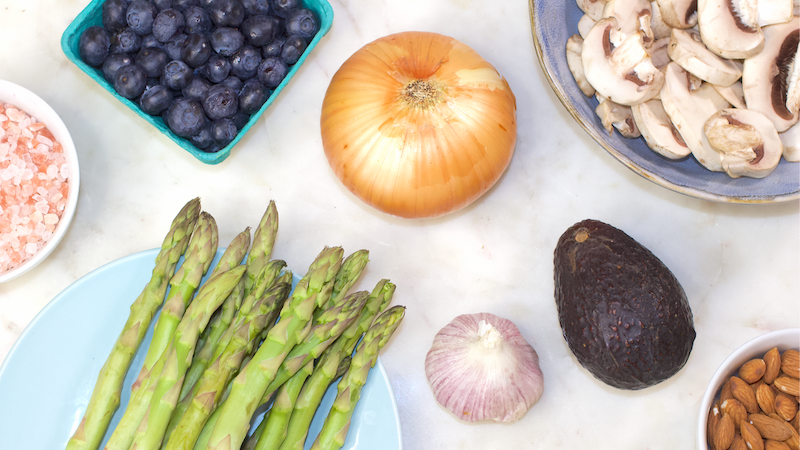


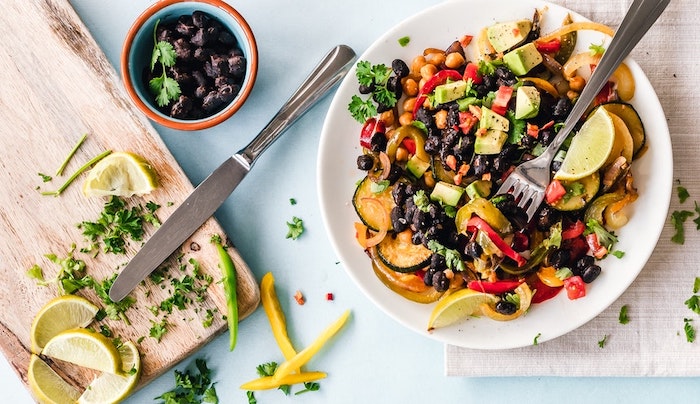
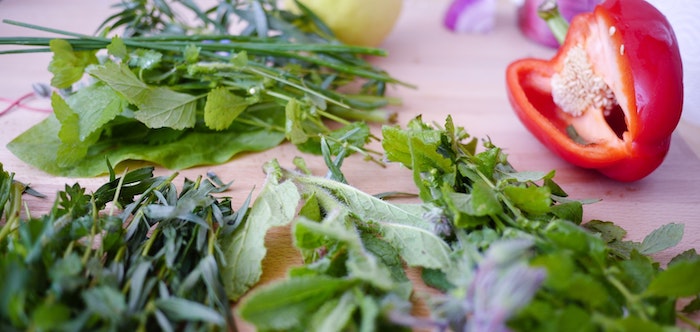
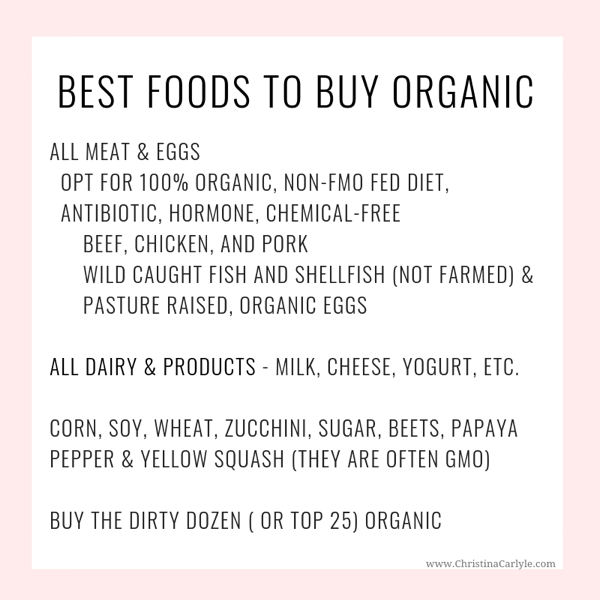
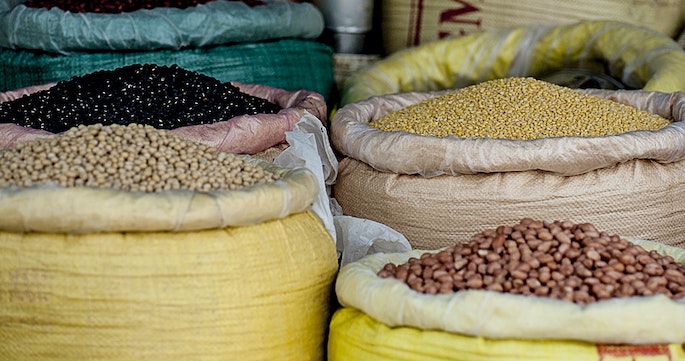
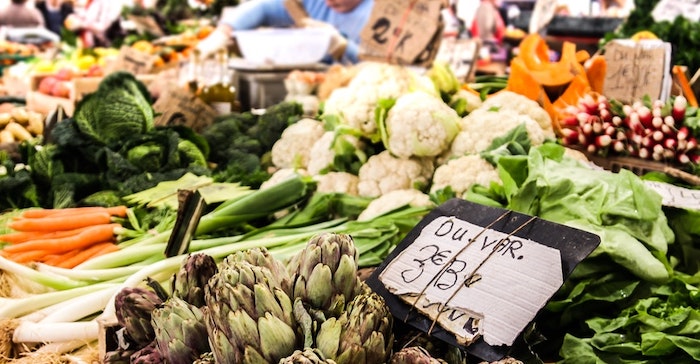
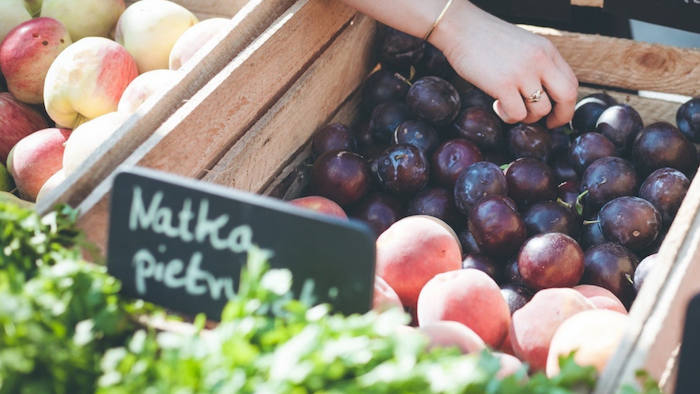
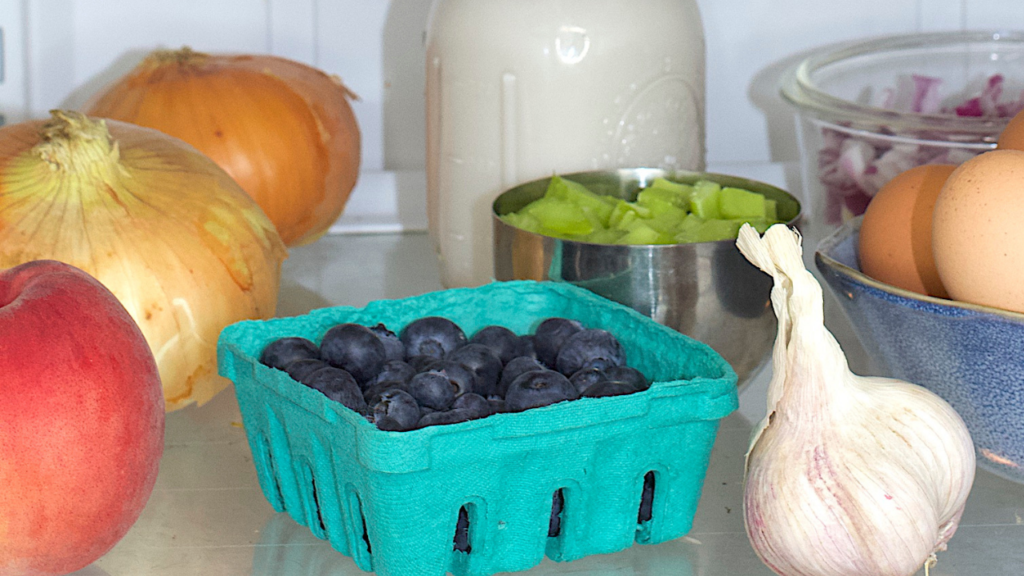
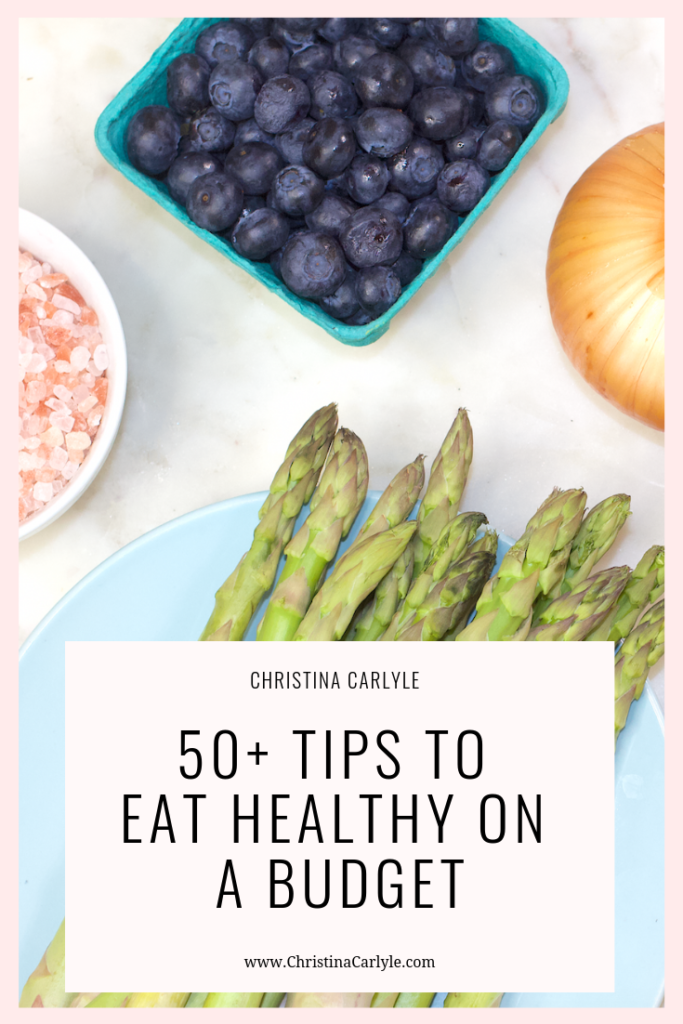


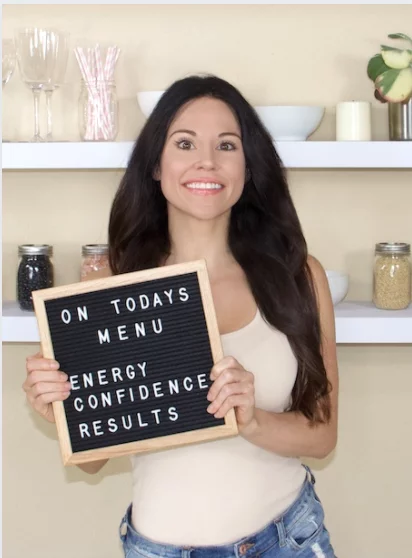

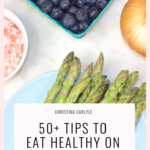
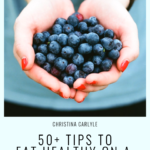
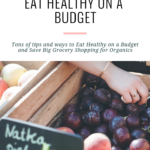
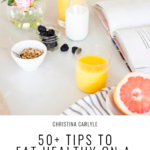
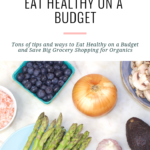
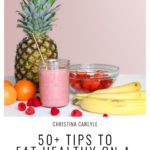
Awesome! Awesome! Awesome! I’ve been sleeping on more FANTASTIC Info yet again….brilliant….just brilliant..
Thank you so much, Lenita! I’m glad you’ve found this helpful. : ) xxoo CC